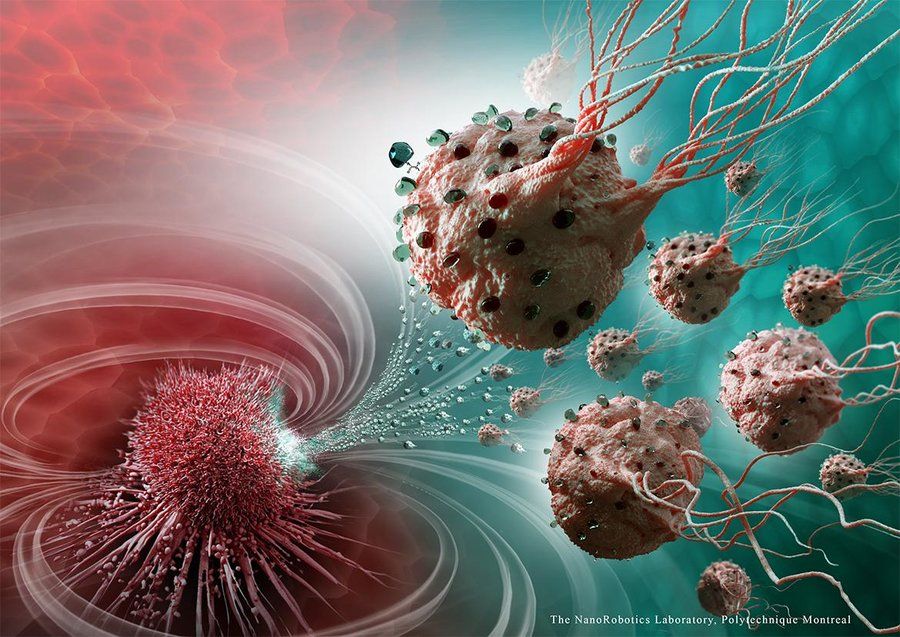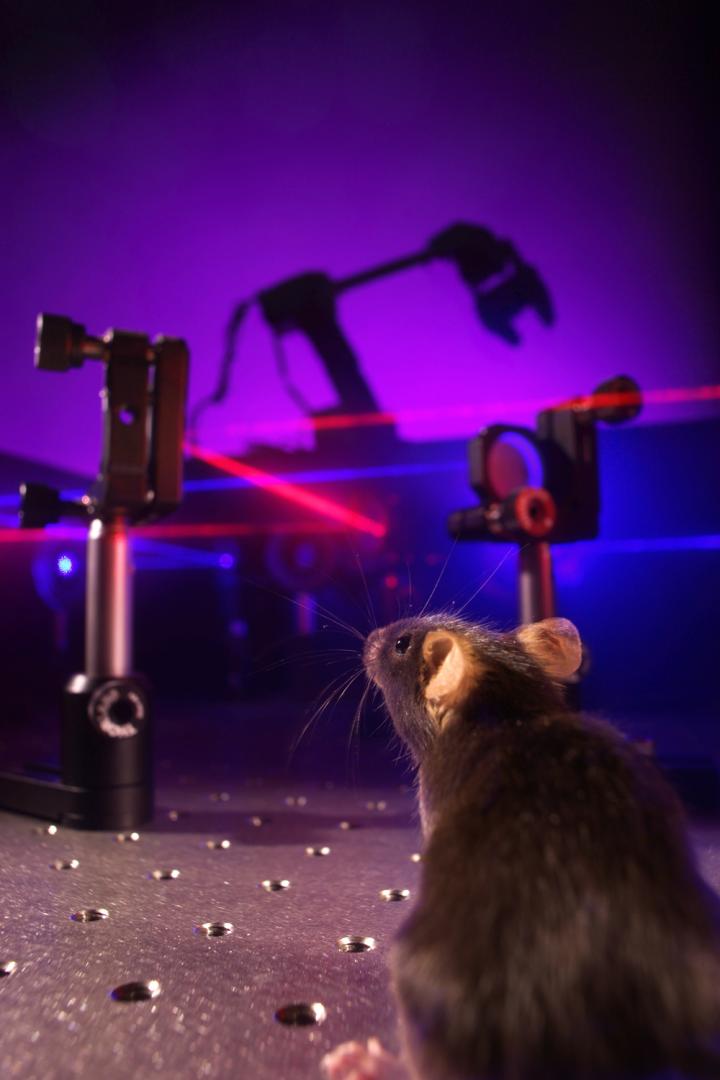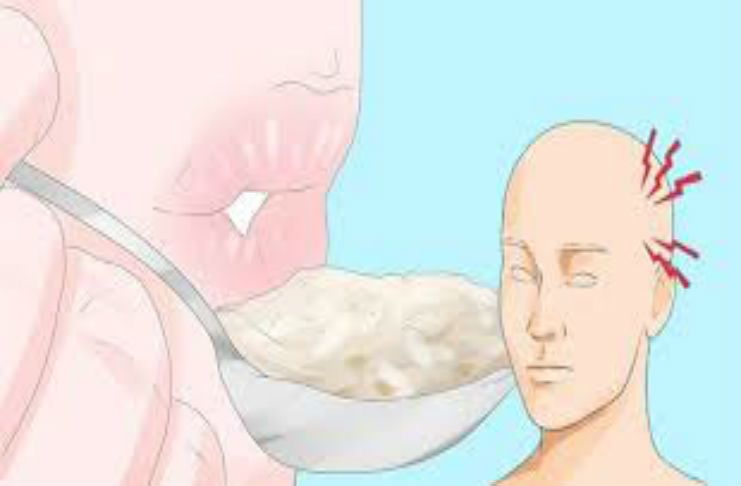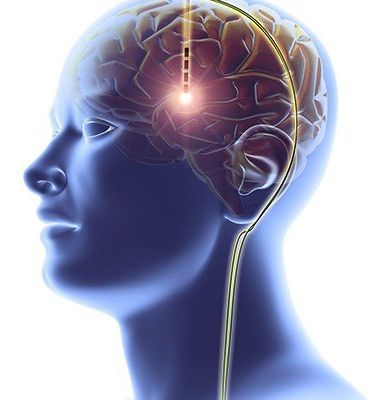Archive for the ‘biotech/medical’ category: Page 2445
Feb 27, 2017
This Neural Probe Is So Thin, The Brain Doesn’t Know It’s There
Posted by Bruno Henrique de Souza in categories: biotech/medical, cyborgs, robotics/AI
Wiring our brains up to computers could have a host of exciting applications – from controlling robotic prosthetics with our minds to restoring sight by feeding camera feeds directly into the vision center of our brains.
Most brain-computer interface research to date has been conducted using electroencephalography (EEG) where electrodes are placed on the scalp to monitor the brain’s electrical activity. Achieving very high quality signals, however, requires a more invasive approach.
Integrating electronics with living tissue is complicated, though. Probes that are directly inserted into the gray matter have been around for decades, but while they are capable of highly accurate recording, the signals tend to degrade rapidly due to the buildup of scar tissue. Electrocorticography (ECoG), which uses electrodes placed beneath the skull but on top of the gray matter, has emerged as a popular compromise, as it achieves higher-accuracy recordings with a lower risk of scar formation.
Continue reading “This Neural Probe Is So Thin, The Brain Doesn’t Know It’s There” »
Feb 27, 2017
‘They want to be literally machines’: Writer Mark O’Connell on the rise of transhumanists
Posted by Zoltan Istvan in categories: biotech/medical, cryonics, cyborgs, life extension, neuroscience, transhumanism
Slate book columnist Mark O’Connell’s new book To Be a Machine, which is specifically about #transhumanism, is out tomorrow. So there’s a ton of reviews out in major media. The last chapter in the book is about my work. Here are 3 reviews just out on the book. ALSO, I highly encourage you to BUY the book to help transhumanism grow. Mark’s book is the first book specifically on the movement with this kind of international attention, and the better the book does the first week, the more people will know about transhumanism: http://www.theverge.com/2017/2/25/14730958/transhumanism-mar…biohackers &
http://www.theglobeandmail.com/arts/books-and-media/book-rev…e34127614/ &
http://www.themillions.com/2017/02/mark-oconnell-doesnt-want…rview.html
Feb 26, 2017
Biologists propose to sequence the DNA of all life on Earth
Posted by Shailesh Prasad in category: biotech/medical
Still-unfunded plan would start with all plants, animals, and other eukaryotes—some 1.5 million species—for the cost of the original human genome project.
Feb 26, 2017
Brain-machine interfaces: Bidirectional communication at last
Posted by Klaus Baldauf in categories: biotech/medical, cyborgs, robotics/AI
Since the early seventies, scientists have been developing brain-machine interfaces; the main application being the use of neural prosthesis in paralyzed patients or amputees. A prosthetic limb directly controlled by brain activity can partially recover the lost motor function. This is achieved by decoding neuronal activity recorded with electrodes and translating it into robotic movements. Such systems however have limited precision due to the absence of sensory feedback from the artificial limb. Neuroscientists at the University of Geneva (UNIGE), Switzerland, asked whether it was possible to transmit this missing sensation back to the brain by stimulating neural activity in the cortex. They discovered that not only was it possible to create an artificial sensation of neuroprosthetic movements, but that the underlying learning process occurs very rapidly. These findings, published in the scientific journal Neuron, were obtained by resorting to modern imaging and optical stimulation tools, offering an innovative alternative to the classical electrode approach.
Motor function is at the heart of all behavior and allows us to interact with the world. Therefore, replacing a lost limb with a robotic prosthesis is the subject of much research, yet successful outcomes are rare. Why is that? Until this moment, brain-machine interfaces are operated by relying largely on visual perception: the robotic arm is controlled by looking at it. The direct flow of information between the brain and the machine remains thus unidirectional. However, movement perception is not only based on vision but mostly on proprioception, the sensation of where the limb is located in space. “We have therefore asked whether it was possible to establish a bidirectional communication in a brain-machine interface: to simultaneously read out neural activity, translate it into prosthetic movement and reinject sensory feedback of this movement back in the brain”, explains Daniel Huber, professor in the Department of Basic Neurosciences of the Faculty of Medicine at UNIGE.
Providing artificial sensations of prosthetic movements.
Continue reading “Brain-machine interfaces: Bidirectional communication at last” »
Feb 26, 2017
10 Dangerous Brain-Damaging Habits to Stop Immediately
Posted by Karen Hurst in categories: biotech/medical, food, neuroscience
Need a new excuse for not working too late and or studying to hard well you have one as it can create brain damage.
The only organ in our body that ‘thinks’ is often the one we think the least about.
Our brain is the single most important organ in our body, controlling everything we do, from breathing, walking, eating, sleeping, etc. It’s the central processor for all our bodily functions, the part that interprets what we see and hear, smell and taste, and even a place where the chemical reaction associated with love occurs.
Continue reading “10 Dangerous Brain-Damaging Habits to Stop Immediately” »
Feb 26, 2017
IARPA Wants Ways to Protect Nation from Genome Editing
Posted by Karen Hurst in categories: bioengineering, biotech/medical, food
Sorry, you’re way, way too late as that genie is already in the hands to so many (good and bad) if we were going to control this; were over 2 years too late.
Gene editing could create pest-resistant crops, but it could also create new organisms that threaten humans, according to IARPA.
Feb 26, 2017
The human brain makes fructose, researchers discover – here’s why that might be a big deal
Posted by Karen Hurst in categories: biotech/medical, food, neuroscience
Researchers at Yale University have discovered that the brain is capable of making fructose – a simple sugar, usually found in fruit, vegetables and honey.
Not all sugars are equal. Glucose is a simple sugar that provides energy for the cells in your body. Fructose has a less important physiological role and has been repeatedly linked to the development of obesity and type 2 diabetes. When there is excess glucose the processes that break it down can become saturated, so the body converts glucose into fructose instead, using a process known as the “polyol pathway”, a chemical reaction involved in diabetic complications. The researchers at Yale reported in the journal, JCI Insight, that the brain uses the polyol pathway to produce fructose in the brain.
Feb 26, 2017
Scientists test deep brain stimulation as potential anorexia therapy
Posted by Karen Hurst in categories: biotech/medical, food, neuroscience
Now this is what I am talking about when brain stimulation can treat disease and disorders were often better off.
LONDON: A small study in 16 people with severe anorexia has found that implanting stimulation electrodes into the brains of patients could ease their anxiety and help them gain weight.
Researchers found that in extreme cases of the eating disorder, the technique — known as deep brain stimulation (DBS) — swiftly helped many of those studied reduce symptoms of either anxiety or depression, and improved their quality of life.
Continue reading “Scientists test deep brain stimulation as potential anorexia therapy” »
Feb 26, 2017
Bioprinter makes fully functional human skin
Posted by Saúl Morales Rodriguéz in categories: 3D printing, bioengineering, bioprinting, biotech/medical, business
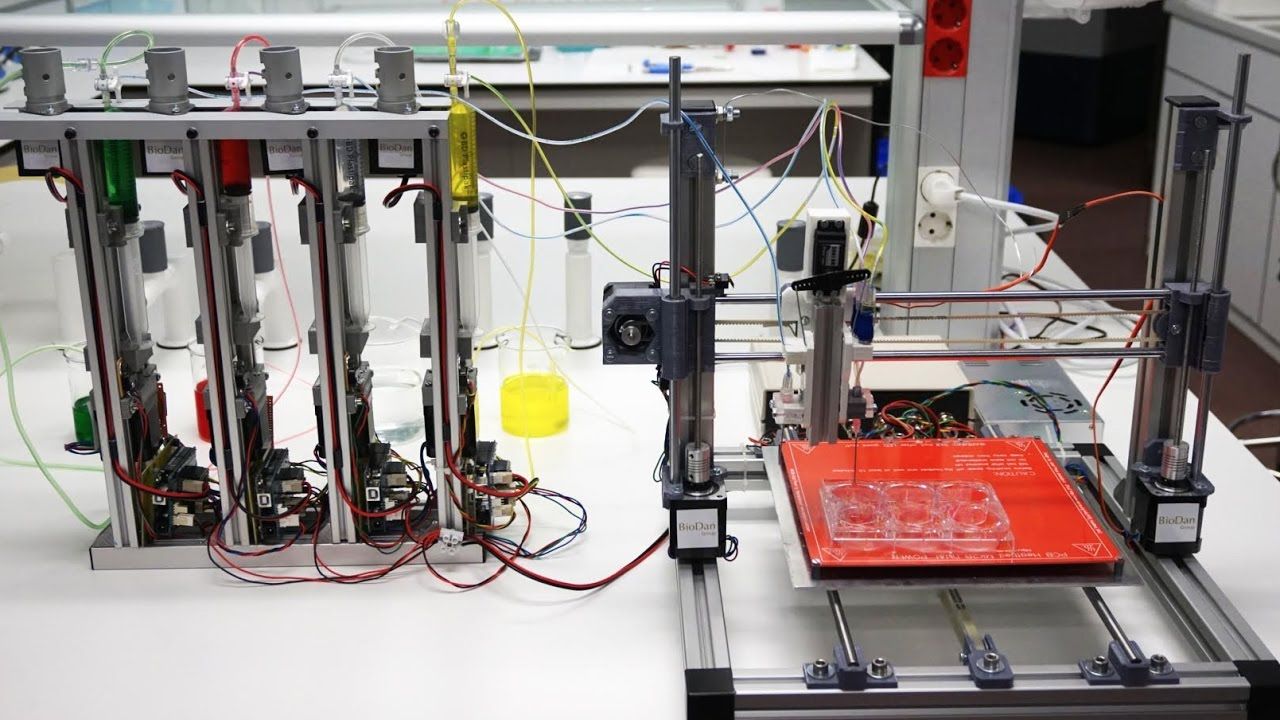
Scientists from the Universidad Carlos III de Madrid (UC3M), CIEMAT (Center for Energy, Environmental and Technological Research), Hospital General Universitario Gregorio Marañón, in collaboration with the firm BioDan Group, have presented a prototype for a 3D bioprinter that can create totally functional human skin. This skin is adequate for transplanting to patients or for use in research or the testing of cosmetic, chemical, and pharmaceutical products.
This research has recently been published in the electronic version of the scientific journal Biofabrication. In this article, the team of researchers has demonstrated, for the first time, that, using the new 3D printing technology, it is possible to produce proper human skin. One of the authors, José Luis Jorcano, professor in UC3M’s department of Bioengineering and Aerospace Engineering and head of the Mixed Unit CIEMAT/UC3M in Biomedical Engineering, points out that this skin “can be transplanted to patients or used in business settings to test chemical products, cosmetics or pharmaceutical products in quantities and with timetables and prices that are compatible with these uses.”
Continue reading “Bioprinter makes fully functional human skin” »
